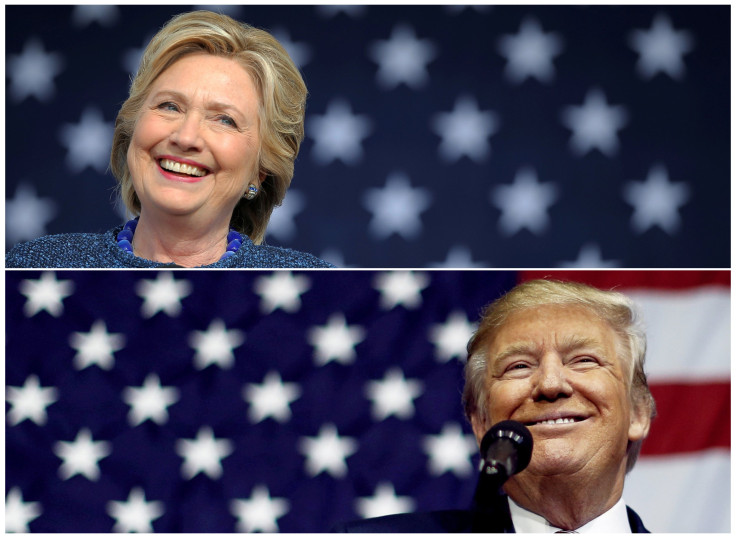Under President Donald Trump, What Does The World Look Like? Nuclear Missiles And War On The Table

It's looking increasingly likely Tuesday that Republican nominee Donald Trump will soon be president as he appeared poised to pull off an unexpected victory over Democratic nominee Hillary Clinton. And if he follows through on some of his foreign policy promises, the world will look vastly different. Here's a quick rundown:
NATO
One of Trump's principal promises while campaigning was centered on the North Atlantic Treaty Organization. He seemingly suggested he would not defend other NATO members and regularly referred to the alliance as "obsolete." He said other nations needed to pay their fair share for the U.S. to lend support.
"I would prefer that we be able to continue, but if we are not going to be reasonably reimbursed for the tremendous cost of protecting these massive nations with tremendous wealth," he told the New York Times.
Iran
Trump has said he would rip up the the Iran nuclear deal, which was aimed at curbing the nation's ability to acquire nuclear arms. "Iran, the world’s largest state sponsor of terrorism, is now flush with $150 billion in cash released by the United States," he said in his convention speech. "Worst of all, the nuclear deal puts Iran, the number one state sponsor of radical Islamic terrorism, on a path to nuclear weapons."
Nuclear arms
Trump went back and forth on the issue, but had suggested while campaigning that Japan and South Korea should be allowed to acquire nuclear arms. "It's not like, gee whiz, nobody has them. So, North Korea has nukes. Japan has a problem with that. I mean, they have a big problem with that. Maybe they would in fact be better off if they defend themselves from North Korea," he said in an interview.
When asked to clarify if he meant nuclear weapons, Trump responded, "Including with nukes, yes, including with nukes." Trump later said he never said Japan should get nuclear weapons.
Trade barriers with Mexico, others
Trump has said he would re-negotiate the North American Free Trade Agreement (NAFTA), which allows free trade in the U.S., Mexico and Canada. Trump said he would require a 35 percent tariff, or tax on imports, from Mexico. He also said he would put a 45 percent tariff on imports with China. The trade policies caused concern among economists who typically posit free trade promotes economic growth.
The fight on ISIS
Trump regularly criticized Clinton's approach to fighting the so-called Islamic State group. He has said he would use the element of surprise to beat ISIS. He also famously said he would "bomb the s--t out of them," especially targeting oil fields. He has also said he would rely on generals to formulate a plan.
"I am also going to convene my top generals and give them a simple instruction: They will have 30 days to submit to the Oval Office a plan for defeating ISIS," Trump said during a September rally.
The Putin/Russia relationship
Trump's relationship with Russia has been well covered. It was reported throughout the election that Russian President Vladimir Putin wanted a Trump presidency. The GOP nominee has said that he, in some ways, admires the Russian president, who has been accused of backing rebels in Ukraine and of having journalists killed. "At least he’s a leader," Trump said on-air last year. "Unlike what we have in this country."
"I don’t know Putin but wouldn’t it be nice if we could get along actually with the other country?” Trump said at a rally. "They want to get ISIS. We want to get ISIS. We’d put everything together, we knock the hell out of ISIS."
Heading into election night, Clinton appeared to be front-runner, although a victory for the former secretary of state was far from assured. The polls-only election forecast from data-driven website FiveThirtyEight gave her an about 68 percent chance of winning the election at the beginning of the week. Other prediction-makers were a bit more bullish on her chances, such as the New York Times' Upshot, which pegged her chances at 84 percent. Those projections appeared to have been far off.
Late Tuesday both FiveThirtyEight and the New York Times had Trump as the overwhelming favorite after he won states like Florida, North Carolina and Ohio.
© Copyright IBTimes 2024. All rights reserved.






















